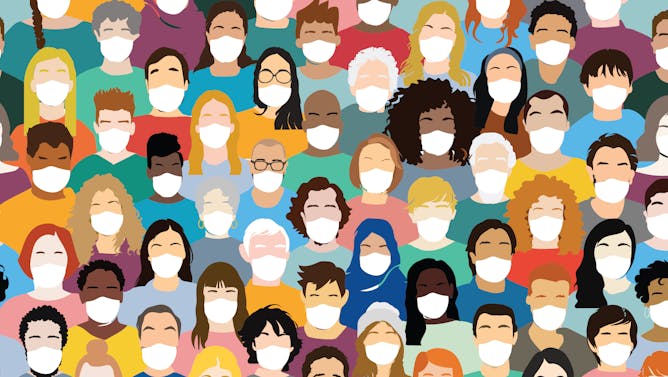|
|
|
|
Most clinical trials done in the U.S. and Europe are designed to find drugs, tests or treatments that work best for everyone. The problem is that the people taking part in clinical trials have tended to be healthy, middle-aged males of European descent. The result is that the generic, idealized human body that is meant to represent “everyone” doesn’t really do a good job of that.
Differences in age, gender and race can mean a treatment that works wonderfully for a young white guy could have unexpected side effects or be less effective in an older woman of color. For example, the devices used to measure the oxygen content of a person’s blood consistently report higher numbers for people with dark skin – this is because the trial that tested the accuracy of pulse oximeters almost certainly didn’t have enough people of color. These bad readings led to worse care for African Americans during the pandemic because doctors were getting incorrect information from inadequately tested equipment.
Now imagine the other end of the spectrum, an approach to medicine that would give every person a treatment that is best suited for them based on their race, age, genetics and even social and environmental demographics. This is the promise of precision medicine.
In this episode of The Conversation Weekly podcast we speak to Julia Liu, a gastroenterologist at Morehouse School of Medicine, Jennifer Miller, a physician and bioethicist at Yale University and Keith Yamamoto, a cellular biologist and director of the precision medicine department at the University of California, San Francisco about the path to precision medicine and how correcting bias in clinical trials can improve the health of people today and in the future.
The Conversation Weekly brings you insight into some of the most interesting research being done around the world. You can listen wherever you get your podcasts, including Apple Podcasts, Spotify and Amazon.
Also today:
|

|
Daniel Merino
Associate Science Editor & Co-Host of The Conversation Weekly Podcast
|
|

Most clinical trials overrepresent young white males.
Andresr/Digital Vision via Getty Images
Daniel Merino, The Conversation; Nehal El-Hadi, The Conversation
Medicine works better when the treatments are tailored to fit each individual person’s biology and history. A first step is increasing diversity in clinical trials, but the end goal is precision medicine.
|
Ethics + Religion
|
-
Sandra Ristovska, University of Colorado Boulder
Jurors can perceive events in a video in different ways – one of which depends on how the evidence is presented in court, a media scholar explains.
-
Jonathan Kaplan, The University of Texas at Austin
The famous biblical book alludes to God only once. Historically, though, most interpreters have argued the poem’s about love between the divine and his people.
|
|
Science + Technology
|
-
Andrew Feinberg, Johns Hopkins University
An epigenetic model of cancer that incorporates the concept of stochasticity could also explain why cancer risk increases with age and how biological development can be reversible.
|
|
Education
|
-
David Riedman, University of Central Florida; James Densley, Metropolitan State University ; Jillian Peterson, Hamline University
Some Americans hoped the Parkland shooting in 2018 would herald a turning point for gun violence in schools. Shootings, and deaths, have continued – and gotten more frequent.
|
|
Health + Medicine
|
-
Kyle B. Enfield, University of Virginia
Some coughs can last for weeks or even months following an upper respiratory infection. The good news – albeit not very satisfying – is that most eventually go away on their own.
-
Jennifer Mitchell, University of California, San Francisco
The early research suggests the drugs might be effective for some conditions. But scientists have safety concerns.
-
MaCalus V. Hogan, University of Pittsburgh
Sprained ankles are a common injury to anyone who plays sports and usually not a serious concern. But with an NFL championship on the line, the specifics of an ankle injury and how to treat it matter.
|
|
Economy + Business
|
-
D. Brian Blank, Mississippi State University
Companies bought $1 trilion of their own shares in 2022. What’s wrong with that?
|
|
Arts + Culture
|
-
Gena R. Greher, UMass Lowell
Pop composer Burt Bacharach died on Feb. 8, 2023, at the age of 94. He left a legacy of classic songs beloved by generations.
-
Nick Lehr, The Conversation
With few regulations in place, gambling companies are going all-in to attract as many customers as possible – with younger, sports-obsessed and smartphone-savvy Americans particularly vulnerable.
|
|
Environment + Energy
|
-
Michael E. Webber, The University of Texas at Austin; Drew Kassel, The University of Texas at Austin; Joshua D. Rhodes, The University of Texas at Austin; Matthew Skiles, The University of Texas at Austin
Texas wasn’t prepared to keep the lights on during Winter Storm Uri, and it won’t be ready for future cold weather unless it starts thinking about energy demand as well as supply.
|
|
|
|
From our international editions
|
|
|
|
|
|
|
|---|
-
More of The ConversationLike this newsletter? You might be interested in our weekly and biweekly emails: Trying out new social media? Follow us: -
About The ConversationWe're a nonprofit news organization dedicated to helping academic experts share ideas with the public. We can give away our articles thanks to the help of foundations, universities and readers like you. |
|
| |
| |
| |

|
| |
| |
| |
| |
| |
| |
|
|
|
|
|
|
|